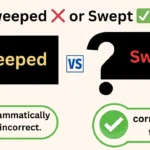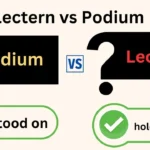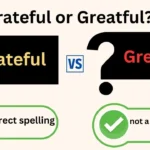In the world of communication, clarity is key. Misusing future tense constructions can muddle your message and affect how your audience perceives your professionalism.
A common point of confusion is the difference between “will send” and “will be sent.”
Understanding when and how to use these phrases correctly can greatly enhance your written and spoken communication.
Future Tense Basics
What is Future Tense?
Future tense refers to verbs that indicate actions or states that will happen after the present moment. It allows us to talk about things that haven’t occurred yet but are expected to take place. There are several forms of future tense:
- Simple Future: Describes actions that will happen at a specific time in the future.
- Future Continuous: Indicates actions that will be ongoing at a particular future time.
- Future Perfect: Refers to actions that will be completed before a certain point in the future.
- Future Perfect Continuous: Highlights actions that will be ongoing up to a certain future point.
Understanding these forms helps in choosing the appropriate construction for your sentence.
“Will Send” Explained
Structure and Usage
The phrase “will send” follows the structure:
[Subject] + [will] + [base form of the verb]
This form is used in the simple future tense to describe actions that the subject will perform directly.
Example Sentences:
- I will send the email by noon.
- She will send the package tomorrow.
In these examples, the subject is directly responsible for the action.
When to Use “Will Send”
Use “will send” when you want to emphasize the action being performed by the subject. It’s commonly used in:
- Direct Actions: Actions where the subject is the one performing the task.
- Clear Responsibility: When it’s important to specify who will carry out the action.
Example Contexts:
- Business Emails: “I will send you the report by the end of the day.”
- Personal Plans: “I will send the invitations this weekend.”
“Will Be Sent” Explained
Structure and Usage
The phrase “will be sent” uses the structure:
[Subject] + [will be] + [past participle of the verb]
This is a passive voice construction, which shifts the focus from who performs the action to the action itself.
Example Sentences:
- The report will be sent by the team leader.
- The package will be sent on Monday.
In these sentences, the emphasis is on the action (sending) rather than who is performing it.
When to Use “Will Be Sent”
Use “will be sent” when the emphasis is on the action and its outcome rather than who is responsible for performing the action. This construction is particularly useful in:
- Passive Contexts: When the doer of the action is unknown or less important.
- Formal Writing: To focus on the action or process, such as in reports or formal communications.
Example Contexts:
- Reports: “The updated policy will be sent to all employees.”
- Announcements: “The invitations will be sent out next week.”
Comparative Analysis
Direct vs. Passive Voice
The choice between “will send” and “will be sent” impacts the focus of your sentence:
- Active Voice (“Will Send”): Focuses on who is performing the action. It’s clear and direct, ideal for straightforward communication.
- Passive Voice (“Will Be Sent”): Focuses on the action itself or its recipient. It’s useful for formal or complex contexts where the action’s outcome is more important than the actor.
Table: Comparing Active and Passive Voice
AspectActive Voice (“Will Send”)Passive Voice (“Will Be Sent”)FocusSubject (performer)Action or recipientClarityDirect and specificLess direct, more formalUsageEveryday communicationFormal reports, announcements
Choosing the Right Form
Guidelines:
- Use “will send” when you want to emphasize who will perform the action.
- Use “will be sent” when the action or its result is more significant than the performer.
Examples:
- “I will send the invoice by Friday.” (Active, focus on who is sending)
- “The invoice will be sent by Friday.” (Passive, focus on when it will be sent)
Common Mistakes and How to Avoid Them
Typical Errors
- Confusing Active and Passive: Using “will send” when “will be sent” is more appropriate can make sentences unclear.
- Overusing Passive Voice: Relying too much on “will be sent” might obscure who is responsible for the action.
Tips for Accurate Usage
- Identify the Focus: Decide whether the focus is on the performer or the action. This helps in choosing between active and passive voice.
- Revise for Clarity: Read your sentences to ensure they clearly convey the intended meaning. If the subject’s action is crucial, use “will send”; if the result or process is key, use “will be sent.”
Practice Exercises
Interactive Examples
Complete the following sentences with either “will send” or “will be sent”:
- The feedback __________ to the team tomorrow.
- I __________ the revised document by the end of the day.
- The invitations __________ by the office staff next week.
- We __________ the updated schedule as soon as possible.
Answers:
- will be sent
- will send
- will be sent
- will send
Explanation: In each case, the choice between “will send” and “will be sent” depends on whether the emphasis is on the performer or the action.
Real-World Applications
Professional Writing
Correct usage of “will send” and “will be sent” in professional settings enhances clarity and professionalism. Using the right form ensures that your message is clear and effectively communicates your intent.
Example:
- Effective Email: “I will send you the report by the end of the day.”
- Formal Report: “The report will be sent to all department heads for review.”
Everyday Communication
In personal communication, proper use of these forms helps in being clear and direct. It avoids misunderstandings and ensures that your message is easily understood.
Example:
- Personal Note: “I will send you the photos this weekend.”
- Group Announcement: “The results will be sent to everyone by Friday.”
Conclusion
Understanding the difference between “will send” and “will be sent” is crucial for effective communication.
By choosing the appropriate form based on the context and focus of your message, you can enhance clarity and professionalism in both written and spoken communication.
Recap
- “Will Send” is used for direct actions performed by the subject.
- “Will Be Sent” emphasizes the action or result rather than the performer.
Encouragement
Mastering these forms not only improves your grammatical accuracy but also boosts your confidence in communicating clearly and professionally.
Call to Action
Review your recent communications and apply these guidelines to ensure you’re using “will send” and “will be sent” correctly. Practice makes perfect!

Sophie Mitchell, a seasoned English educator, brings her passion for language and years of teaching expertise to TalkSpeaker. With a knack for simplifying grammar and expanding vocabulary, she empowers learners to master English with confidence.




